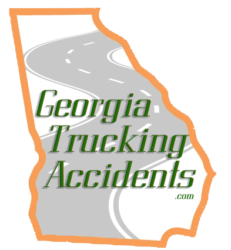Stages of a Truck Crash Lawsuit in Georgia
Our Georgia truck crash attorneys have earned a reputation for zealous advocacy based on their relentless pursuit of justice for their clients and their families. Our Georgia truck accident attorneys treat every case as if it was their own and draw upon their knowledge, experience, and integrity to put their clients in the strongest position possible to maximize their potential financial recovery.
Our firm vigorous pursuit of justice on behalf of their clients who are victims of Georgia truck accidents requires them to file lawsuits at times. While settling the matter out of court is preferable to filing a lawsuit, justice dictates filing a lawsuit when the insurance company opposing the victim’s claim refuses to resolve the matter fairly.
Our Georgia truck accident attorneys pride themselves on working hard and efficiently to settle their clients’ cases quickly, that is not always possible. On some occasions, attorneys for truck crash victims must file a lawsuit to protect their client’s rights even if the case is likely to settle. Lawyers must file a lawsuit before the statute of limitations runs on the claim. In Georgia, there is a two-year statute of limitations imposed by Georgia Code §9-3-33. Missing this deadline will irrevocably prejudice the victim and his or her family. Therefore, our lawyers will file a lawsuit to protect their clients’ rights even if a settlement is imminent.
Many times, however, insurance companies are unreasonable and refuse to settle a case reasonably. In that instance, our Georgia truck crash lawyers will file a lawsuit on their client’s behalf and pursue the claim aggressively. Filing a lawsuit begins by drafting a complaint and filing it in the Georgia Superior Court, or federal district court, having jurisdiction over the suit. The party who files the suit is the plaintiff, and the party who must respond is the defendant. Once the lawsuit has been filed, the plaintiff must serve the defendant with the complaint and a summons, which is a judicial order obligating the defendant to respond or be defaulted. The defendant must file a pleading called an answer to the complaint within 20 days. A defendant typically denies the allegations and then asserts affirmative defenses, and possibly a counterclaim.
The next stage of litigation involves discovery. Discovery, as the term implies, permits the parties to ask each side to produce information and respond to questions. Questions posed to the parties by the opposition in writing are called interrogatories. Additionally, opposing sides will request that they produce documents in response to certain requests. Document requests will include requests for medical records, employment records, trucking records, driving history, maintenance history, and driver’s logs, among other requests. Then, the lawyers for each side will schedule depositions. A deposition is an examination under oath conducted by the opposing lawyer of the parties and any witnesses that might be called to testify at trial.
The next stage of the litigation involves filing motions for summary judgment. Each side will argue that the other side cannot win because there is no genuine issue of material fact to be litigated. Many times this motion is denied because the facts are in dispute. Factual disputes require resolution by a trial.
The final stage of litigation is the trial. Each side will present witnesses and evidence to a judge or a jury and advocate for their clients. The jury will render a verdict and pass judgment on the case.
It is important to note that settlement talks can continue throughout the course of litigation. Additionally, the parties or the court can refer the case to either mediation or arbitration in an attempt to resolve the case before trial. In fact, many cases do settle before trial. Rest assured, however, that no matter what course your case takes, our legal team will be by your side every step of the way.
For more information on claims process, please consult our article on truck accident claims process.
Put Our Law Firm’s Over 33 Years Of Legal Experience To Work For Your Case!
The time you have to legally receive compensation is limited.
Sources: legal experience.

